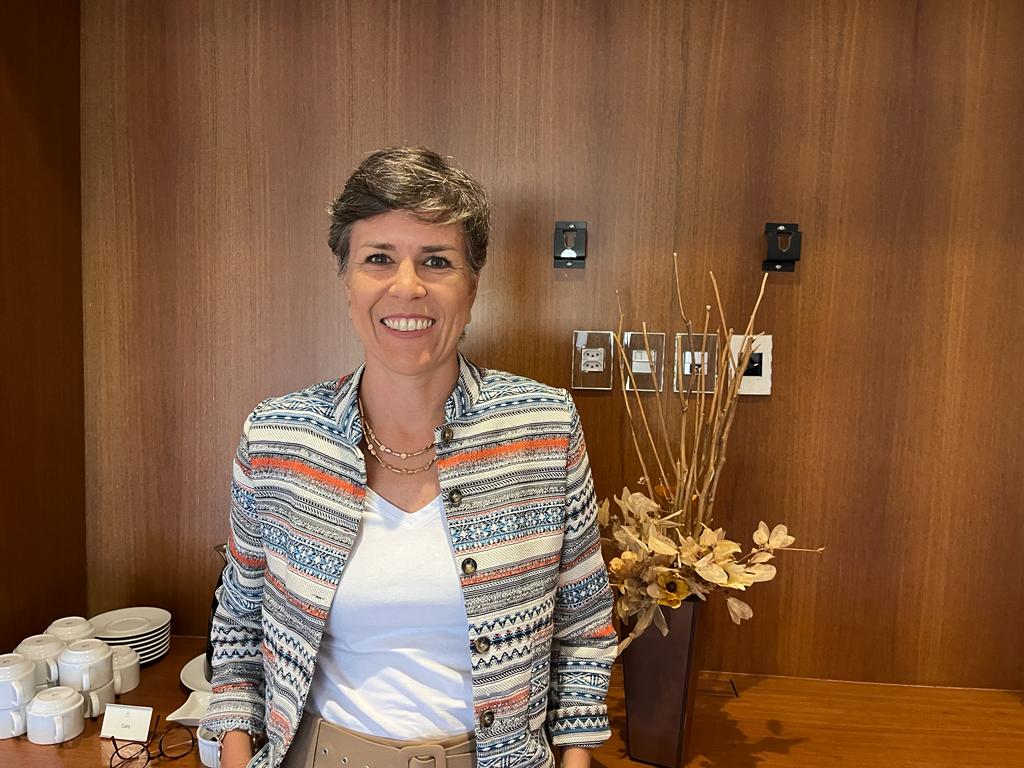São Paulo – The Brazilian Trade and Investment Promotion Agency (ApexBrasil) wants more women-led businesses to start exporting. In 2022, only 343 of the 4,000 Brazilian exporting companies were led by women. One of the purposes of the Women and International Business program launched by the agency in early June is that this number reaches 1,000 companies by the end of 2024.
Ana Repezza (pictured), Business director at ApexBrasil, talked to ANBA in Brasília. She took office in January 9 and noticed that eight of the 10 agency’s managers are women. “Coupling this with the landscape of the current administration of seeking gender equity in positions of the public administration, I saw we had to take this opportunity to leave a legacy, to make the women’s presence in leadership positions to convert into more women in foreign trade actions,” said Repezza.
This initiative was first thought of in February and started being implemented earlier this month. “This conductive environment led [ApexBrasil] president Jorge [Vianna] to embrace this idea, and within three months we managed to launch the Women and International Business, a program that cuts across all actions developed by Apex, bringing a gender lens to such actions,” said Repezza.
The goal for 20226 is that 50% of exporting businesses are led by women, whether they are owners or directors. ApexBrasil has 14,000 backed companies in its database. Less than 3,000 are led by women (as per 2022 figures). “This reflects the reality of Brazilian and global entrepreneurship; there a significantly lower number of women in leadership positions in business, and in foreign trade, the proportion is even lower,” she said.
The world average rate of women-led exporting businesses is 20%. In Brazil it stands at 14%, and only 5% of the startups are led by women in the country. “It’s a structural challenge,” said Repezza.
The program presents two major challenges for the agency. The first, said Repezza, is bringing in more women-led companies to all actions of ApexBrasil, particularly export-related training activities. The second is to convert women-led non-exporting businesses into exporters.
“You know what they say, it takes a village to raise a child? I say it takes a network to make a woman to export,” said Repezza. She said they’re seeking partners whose solution could complement these actions.
ApexBrasil’s program currently has 20 partners. They include the Ministry of Development, Industry, Trade and Services under the leadership of Foreign Trade secretary Tatiana Prazeres, the Ministry of Women, the Ministry of Agrarian Development, the Ministry of Foreign Affairs, and in the private sector, Rede Mulher Empreendedora, Sebrae, the women’s networks Women Inside Trade and Mulheres no Comex, and others.
One of the actions of the program is a mentorship process that Repezza says has proven to work well for women. Women that already export mentor those who haven’t exported yet, addressing specific issues. Another action in the program will be B2Bs for women, the first one to be held in October. “Even in non-specific actions, women will have equity,” said Repezza.
The program expects medium- to long-term results, the director said, as a company takes an average of two to three years to start exporting.
A review by the World Bank indicated that exporting companies create better jobs and pay better wages. “When you put women in this equation, the impact of this pay raise is even higher, as women usually come from lower base salaries. When women start exporting and have access to more income, they invest in the education and feeding of their children, particularly in lower-income families, thus creating an intergenerational impact and providing better conditions for future generations,” she said.
Repezza stressed the importance of including rural women in the program. “The Agrarian Development Ministry has the Rural Women Productive Organization Program, and in family farming, most leaders are women, but they’re usually on the margins of the process, which includes actualy negotiating, selling, seeing the profit. The program will empower these women’s groups of small-sized farms, fishers, harvesters, and we’ll bring in the opportunity to export. Imagine the impact this will cause in these communities. For me that’s the most important goal, to change the reality of access to income,” said the director.
“The great purpose of this project is to create an impact and bring more income to these women,” she finished.
Translated by Guilherme Miranda




